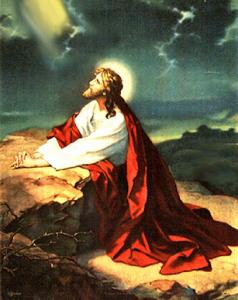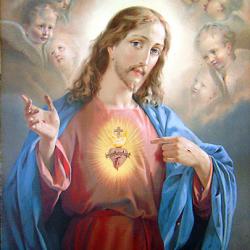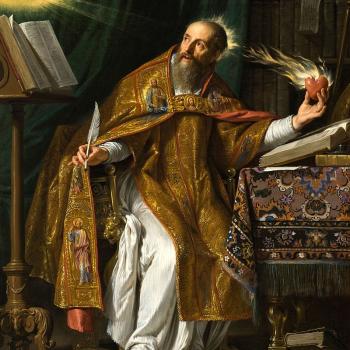What Catholics I’ve Written About Have Written or youtubed lately.
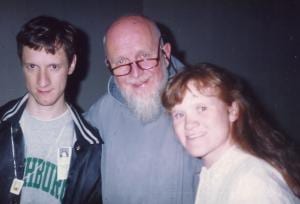
A Taste of First Peter Five and Patheos Catholic MAY 21, 2020
OnePeterFive reposted Kennedy Hall@kennedyhall (Please pray for Pope Francis. He is getting sicker and is quite old now. I imagine he might not be long for this world, as his ailments become more serious as he ages.
-Matthew Plese Miracles As Testified in the Holy Scriptures (January 27, 2025) OnePeterFive
People horrified at the idea of fungus that takes over the minds of insects have an enormously anthropocentric and deeply projective idea of what an insect’s intellectual life is like. Calling what goes on in the glorified nerve ganglion of an insect a “mind” is a mighty work of imagination and ironically demonstrates far more about how complex the human brain is than the insect’s. Mark Shea (February 11, 2025) FaceBook
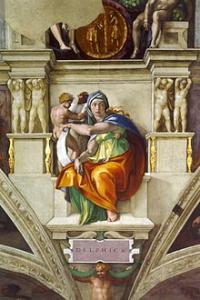
Since God was able to baptize pagan persons and make them holy, the Church quickly realized he could also repurpose and sanctify lots of other pagan things. This, for instance, is how pagan temples dedicated to pagan gods could be re-dedicated as Christian Churches such as Santa Maria Sopra Minerva (Saint Mary over Minerva, a shrine dedicated to Mary that used to be shrine dedicated to Minerva):
It’s why there are five pagan sibyls (such as the oracle at Delphi) alternating with seven Jewish prophets on the ceiling of the Sistine Chapel. The Church’s point is that all truth is God’s truth and so truths spoken by pagans remain true. There is not pagan truth and Christian truth. There is just truth. That’s why Thomas could study Aristotle with profit and the Fathers of the Church could make use of Plato and other Greek philosophers. Indeed, Justin Martyr will actually argue that pagans like Socrates were illuminated by the Holy Spirit.
We have been taught that Christ is the first-born of God, and we have declared above that He is the Word of whom every race of men were partakers; and those who lived reasonably are Christians, even though they have been thought atheists; as, among the Greeks, Socrates and Heraclitus, and men like them.
In short, since Jesus is the Truth, anybody anywhere seeking Truth is seeking Jesus, pagans included. So every indigenous culture outside of Israel can be approached on the basis of those truths and beauties and good things that they love since all these things come from God. The Church need not impose on these cultures some culture alien to it in order for them to be Catholic. Indeed, given that Catholic literally means “universal”, the Tradition obliges us to celebrate the myriad ways in which the one Faith is expressed.
Mark Shea – The Amazon Synod: Fortress Katolicus vs. the Church’s Mission (January 28, 2025) Stumbling Toward Heaven
Jimmy Akin@JimmyAkin3000 (, 2025)
Happy Superb Owl Sunday, everybody! Have a great time tomorrow celebrating the Superb Owl! He really is superb!
Ordinary people continue to use language based on the cardiocentric model today, such as when we say that someone is “big-hearted,” “cold-hearted,” or “tender-hearted.” We may say that someone has a “heart of gold” or a “heart of stone,” or that he is a “bleeding heart.” People “learn things by heart.” And of course, the Grinch’s “heart was two sizes too small.”
We do this without even thinking about it, the same way we speak of the sun rising and setting despite what Copernicus and Galileo had to say. For us ordinary individuals, this doesn’t raise much of an issue. The presence of the cardiocentric model in folk expressions is no big deal.
But what about when it appears in Scripture or Church documents—like those approving the Sacred Heart devotion? Does it conflict with the cephalocentric model that regards the head rather than the heart as the seat of mental activity?
Given the complexity of what we observe, this whole area is—as it was in biblical days—a mystery.
-Jimmy Akin, The Heart, the Bible, and Science (2/10/2025) Catholic Answers Magazine
Mark Brumley@mabrumley (Feb 7, 2025)
Catholicism has got to be weird. They let me in. But maybe if it gets less weird they’ll ask me to leave. Maybe you too.


but it will give you something even more precious, peace of heart.”
I promised myself I’d be responsible when ordering pepper seeds this year.
I broke my promise. Rebecca Bratten Weiss (February 10, 2025) on Facebook

It is ironic that temporal beings have difficulty recognizing the value in the finite. If a relationship ends, we assume it was never important. If we can’t hold onto a treasure, we see no point in having it. Maybe this is why billionaires mindlessly amass wealth and civilizations build towers to reach heaven.
A being doesn’t need to last forever to have value. And here’s another irony: Sometimes, we don’t realize how precious something is until it is unrecoverably lost.
From November 1 to December 26, I did not use social media. That means no posting of pictures or videos, but it also means no consumption of videos either. It was an important detox. Now, I’m ready to be back. And boy do I have a lot to share. Of course, I also read Scripture. In fact, I read all four Gospels in four days. I don’t think it’s enough to get little snippets of the Gospels at Mass, you need to read the books in their entirety to really understand them. I decided to make a five part series, released all at once, as a guide for anyone interested in growing closing to Jesus.CaseyOFM (February 3, 2025) I’m Back Breaking In The Habit
Matthew is UNSETTLING – YouTube
Mark is the most UNDERRATED gospel – YouTube
Luke: the gospel for REVOLUTIONARIES – YouTube
John: a MASTERPIECE of theology
Joe Biden is Not a Heretic FEBRUARY 13, 2021
Deacon Steven D. Greydanus.
Steven D. Greydanus shared a memory. February5, 2025) on FaceBook
Five years later praying the Liturgy of the Hours this cross is still mine to bear.(February5,2020) on FaceBook“I rejoice heartily in the Lord, in my God is the joy of my soul; for he has clothed me with a robe of salvation, and wrapped me in a mantle of justice”
(Alas, I cannot read the words “X of justice” without hearing it in the voice of The Tick)

I know my readers include, for example, Christians who don’t care for my writing about cartooning, nonreligious movie fans who skip my homilies, people who just like my writing for whatever reason, etc. Which is great! I’ve always intentionally sought to write for a diverse audience. Not necessarily the widest possible audience—my authorial voice tends to be (not unlike my voice in real life) on the bookish side, which is off-putting to some readers (and to some people in real life, believe me). But I’ve never been interested in addressing a homogenous group of people more or less like myself!
If you’re still here, and planning to stick around: Thank you! Just by following or subscribing and by reading, you make a difference. I mean it. If only a handful of people were reading, I would still write—but not as much, or at the lengths I do. I couldn’t justify taking time away from other things. Just by being out there, you help make this place what it is.
If you occasionally or regularly like, comment, restack, or share in some other way, so much the better! Active readers make all the difference. Thank you, thank you, thank you! And if you’re one of my paid subscribers: My friends, you are genuinely helping to keep the lights on, metaphorically and literally. If you are fewer in number than I need, you are greater in number than I expected, and the money adds up and really does help.
I admit! Most successful publications of this kind find a niche and stick with it. I’m a Catholic deacon, a film critic, a cartooning major and comics enthusiast, and a guy with a lot of interests. To mix metaphors, I want to bring everything to the table and leave everything on the field.
Deacon Steven D. Greydanus – All Things SDG is now SDG’s Dailies & Sundays! (Feb 03, 2025)
Steven Writes about writes about cartooning and movies.

Across the Spider-Verse’s most crushing revelation (a real “No, Luke, I am your father” moment) is that, because the spider that gave Miles spider-powers wasn’t from his universe, Miles has become, even in his own universe, a living anomaly, a cosmic deviation from the “beautiful web of life and destiny”—and that two universes are worse off for it. “You’re not supposed to be Spider-Man,” Miguel growls at Miles in a brutal dressing-down. “You’re a mistake!” Like Luke Skywalker, Miles shouts that this is a lie—which, of course, is a good indication that it isn’t.
I won’t recount in detail the astonishingly elegant way that Across the Spider-Verse weaves together Miles’ established origin story from Into the Spider-Verse, including the Kingpin’s multiverse-spanning collider, with the second film’s multiversal villain (Jason Schwartzman’s the Spot) and the original film’s bagel gag (now serendipitously functioning as an intertextual hat tip to the multiversal “Everything Bagel” metaphor in Everything Everywhere All at Once).
Deacon Steven D. Greydanus – Crisis of meaning, part 3: What lies beyond the Spider-Verse? (Jul 19, 2024)
And here is a sample of a homily.
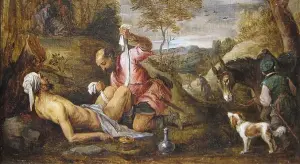
This idea of love and concentric circles is very natural and even necessary to a point. You may have recently heard in the news, somewhat improbably, about the medieval moral concept of ordo amoris, or “order of love.” St. Thomas Aquinas explained it this way: What love of neighbor means in concrete situations depends partly on degrees of connection, but also partly on degrees of need. So, for example, generally speaking, I owe more to my father than to a stranger, but a stranger in urgent need—this is the part some people miss—may take priority over my father who hypothetically is doing fine.
The thing is, we tend to stack the deck in favor of the people we care about more. If I say I’m going to care first for my family, and then my community and my country, and only after that consider the needs of the rest of the world, I’m never actually going to get to the rest of the world—or probably even my fellow Americans, no matter how much greater the needs may be in some cases. This is only natural, but supernatural charity, divine love, calls us to transcend the limits of natural love.
Deacon Steven D. Greydanus True love of neighbor demands radical conversion Feb 23, 2025
Steve Skojec@SteveSkojec (I can’t believe I’ve never taken my boys to one of these“SUNDAY, SUNDAY, SUNDAY…at the Veterans Memorial Arena, it’s MONSTER TRUCK MADNESS!!!”

Steve Skojec founded the rad-trad site OnePeterFive. Here is what he used to write.
I do believe that those of us who have been drawn to the majesty and solemnity of the ancient liturgy have a pearl of great price that should make us excited to be Catholic, and to share the goodness we’ve found with others. We should be happy at Mass, friendly to our fellow parishioners, welcoming to those who are new, and understanding to those who don’t yet see why we make so much effort to be a part of something so outside the norm. Condemnations, judgments, specious arguments, and morose dispositions do no favors for our cause, or its future. We’ve got something great going on, and it’s about time we acted like it.
Steve Skojec They Will Know We Are Traddies by Our Love (October 4, 2010)
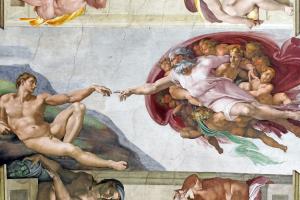
He is no longer a practicing Christian. Which is too bad as he is still a gifted writer and still has many good things to share. Here he is now describing his problem with faith.
There is a modern phenomenon, in our age of media, called a “parasocial relationship.” It’s that feeling you have when you feel like you know some celebrity or public figure who is not even aware of your existence, because you have seen them speak so often, or read their writing so much, that you feel like you get them. At the end of the day, though, it’s one-sided.
To me, even this is more than I have with God. Or to be more specific, Jesus. I don’t know what his face looks like, what his voice sounds like, how he laughs, his mannerisms, the interesting way he responds to complicated questions, or any of the things that make him who he is.
All I have are some dry texts that convey little about him that feels personal to me at all.
How can anyone claim to know or love a person whom you they never met, never spoken to on the phone, never exchanged correspondence, or had any kind of direct interaction with?
How is it that we convince ourselves such things are possible?
And yet, many believers, when confronted with this question, look at you like you have two heads. It seems that for them, this is a problem that has never even been considered.
James Martin, SJ@JamesMartinSJ (, 2025)Happy Feast of Our Lady of Lourdes! “You don’t have to believe in Marian apparitions. But I do.”

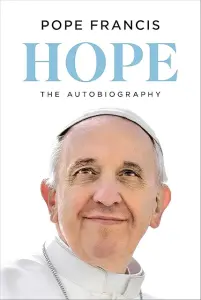
Today, in an excerpt from his new memoir Hope: An Autobiography (written with Carlo Musso) published in The New York Times, Pope Francis praised the value of joy, humor and laughter. While acknowledging that some clerics “come across as bitter, sad,” the pope writes, “generally, we priests tend to enjoy humor and even have a fair stock of jokes and amusing stories, which we are often quite good at telling, as well as being the object of them.”
In passing, he (accurately) notes, “Jokes about and told by Jesuits are in a class of their own.” What I like about these jokes is that for the most part, the Jesuits are the “butt” of the silly stories, usually playing off of our supposed irreligiosity, arrogance or pride. What I like even more is that those who enjoy telling them the most are Jesuits. We are, after all, as another Jesuit joke has it, “Number one in all things—including humility.”
– Father James Martin My 5 favorite jokes about Jesuits (inspired by Pope Francis) (December 17, 2024) America Magazine
Henry Matthew Alt (January 20, 2025)
My novel-in progress involves 13 gruesome murders before the killer is caught.
But of course, they do end. The horror stops after two months.
My problem is, I’m too much of an optimist.
Scott Eric Alt is now Henry Matthew Alt and is done with writing about apologetics or Catholic controversies and is working on a novel. But here is something from his last days as an apologetics writer. His insights are always good.
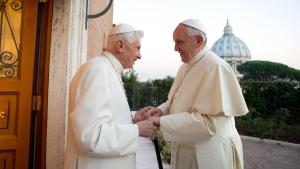
The pope does not give Catholics an infallible hermeneutical key to interpret Amoris Laetitia or Dignitas Infinita. But what we can’t do is interpret them to be in conflict with the deposit of faith, with prior definitive teaching. The one hermeneutic we must apply is a hermeneutic of continuity. Apart from that, the Church—wisely or unwisely as the case may be—asks Catholics to use the sense God gave them to figure out the right interpretation for themselves.
Nowhere in Church teaching do I read that infallibility means omniscience. The pope has no authority, no capacity at all, to tell us all things or answer whatever question pops into our head. We can’t just send him an e‑mail when we’re confused about some passage in Job. Christ didn’t give him the keys so that he could answer interminable dubia. He is not the Answer Man.
–Henry Matthew Alt • April 19, 2024 Infallibility does not mean a pope can tell us all things.
Dave Armstrong on FaceBook February21at 8:50AMAhmed Elabdi Mona Lisa Facebook

We’re very confident, for example, and have every hope that tomorrow we will continue to breathe and that our hearts will be beating as they are today. But we’re not absolutely certain of that. We could suddenly die tonight, after all.
Catholics view salvation in the same way: we have a very strong confidence in that, provided that we examine ourselves and determine that we aren’t in mortal sin. But since we don’ infallibly know the future, short of a direct revelation of God, we can’t be certain that we won’t ever fall away (nor can any Protestant who makes the claim of absolute assurance or eternal security). But an examination of conscience can make us abundantly assured, confident, and hopeful that right now, in this moment of time, we are in God’s good graces, and would go to heaven if we were to die.
Dave Armstrong Biblical “Hope” & Catholic Moral Assurance Of Salvation (February 11, 2025)
Greg Kandra (February9, 2025)I wish I’d thought of this.
A Prayer Before Reading the NewsMy God, the soul you have placed in me is pure and vulnerable.I am afraid that looking at today’s news will be painful.Doomscrolling: a parade of dire headlines. Screenshot of a Bluesky feed.Encircle me in a robe of lightso that I can witness the wounds of the worldwithout being wounded myself.Let me learn what I need to know in order to be of my greatest use,without being overwhelmed by despair.I feel your protective light now as I open myself to the world’s sufferingand the world’s joys. Amen. — Rabbi Irwin Keller (2016),
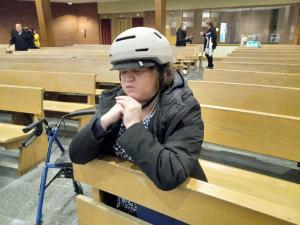
-Deacon Greg Kandra-Into the deep: Homily for February 9, 2025, 5th Sunday in Ordinary Time –
The Catholic Thought of Fr. Matthew P. Schneider LC FEBRUARY 03, 2022
Fr Matthew P. Schneider, LC@FrMatthewLC (, 2025) After the #SuperBowl, we watched episode 1 of Martin Scorsese Presents: The Saints on St. Joan of Arc (it isn’t too late out west). I was pleasantly surprised by how good it was in production, accuracy, & inspiration. I’ll be watching more episodes.
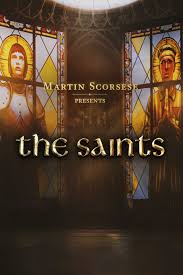
I have seen many people misinterpret Vatican II. I’ve heard people give diametrically opposed understandings of it. I’ve heard people embrace or reject a false image of the council. I’ve seen for years Vatican II was the most talked about thing in Catholic circles for how little it was read.
I wanted to respond.
Polemics seemed inappropriate as then it just goes into competing interpretations. Instead, I was inspired by other “in a year” podcasts to try to read it all with a brief explanation over the course of a year. Reading Vatican II might seem overwhelming, but breaking it up makes it about 425 words a day. Having a long experience explaining Catholic teachings to average Catholics in the pew online, I might be an ideal candidate to read and explain it all.
I made such a realization in the fall of 2023. I realized then that 2025 would be an ideal year to do it as it is the 60th anniversary of the end of the council.
Fr. Matthew P. Schneider, LC Vatican II in a Year Podcast Launch (
He also speaks to the Catholic autistic community.
As many of you may know, I am the president of the board of Autistic Catholics. Our wider goal is autistic inclusion in the Church. Our initial short to medium-term goal is promoting small groups of autistic individuals. Towards this end, we are working on compiling a small group guidebook for parishes, dioceses, etc. Several of us on the board are working on this: I’m reading up on autistic psychology and small-group dynamics along with my extensive knowledge of Catholic spirituality and theology.
However, I want to know what autistics want in a Christian small group with fellow autistics.
–Fr. Matthew P. Schneider, LC What Would YOU Want in an Autistic Christian Small Group? –

And he writes about Catholic spirituality.
It’s unlikely we will impact as many lives as Francis of Assisi, but we should strive to help as many people as possible. This life is the training ground. Every act of obedience, of charity, zeal, or any other virtue, helps us to store up treasure in heaven, so that we can have a large crowd eagerly cheering us on when we go through the tunnel and enter the stadium of eternity.
[Two] visions of eternity speak to our daily actions. The first looks to the treasure we will build up through obedience, prayer, ministry, and service. It is more closely associated with the active or apostolic life: we do ministry to build up a great eternity. The second vision begins with the assurance of salvation and moves us to act in this certainty. It is more closely associated with the contemplative life, though it often involves the same actions as the first vision. The two modes of life are not divorced from each other. As Archbishop Luis Martínez points out in Secrets of the Interior Life: “When the active life is the overflowing of the contemplative life, it is called the apostolic life.”
-Matthew P. Schneider, LC Two Ways to Look to Eternity (January 5, 2025)
The Very Extraordinary Graceful Solid Steel Magnificat APRIL 29, 2022
Mary Pezzulo @mary_pezzulo (Feb 2, 2025) We’re a border state. That’s Canada up there. You could take a canoe from Kelley’s island. And the president is threatening to annex Canada.You know, I’ve lived in Ohio my entire life and I never once really considered that we’re a Border State. I used to stand on the shore at Sandusky pretending to be Annemarie from “Number the Stars” on the Baltic sea, and it still didn’t set in.
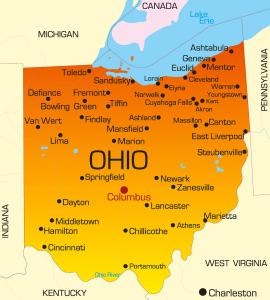
Seeing I like to write about history, this is especially good.
I didn’t like to memorize names and dates. I didn’t like battles or political campaigns. But I liked to hear about how people lived. I wanted to know what clothes they wore, and what they had for dinner, and whether they got gifts at Christmas. Did they go swimming in the summer? Were they bored in church? When it snowed, did they think it was beautiful and go to play outside? Or did they hide away inside and wish it would stop? When it rained instead of snow, was that a blessing or a curse?
Of course, Interesting Times inevitably befell them, or we wouldn’t be reading about them in a history book. When the Interesting Times came, how did they feel, and what did they do?When I studied history as a child, I didn’t want to read about the soldiers who went into battle, or about the people who packed up and fled, or the ones who died at once. I didn’t care about the politicians who made speeches either. I wanted to read about the ordinary people who stayed where they were and fought for good however they could. How did they do it? Did they plant a victory garden? Did they teach children in a one-roomed schoolhouse? Did they become midwives or medics? Make bandages or Molotov cocktails? Spirit their enslaved neighbors away on the Underground Railroad? Put a little cocaine on a handkerchief, so the Nazis’ dogs couldn’t smell the Jewish people hiding under the floorboards?
Were they angry?Did they worry how they’d afford to eat, and then feel guilty for being selfish?
Were they ever so afraid that they wanted to cry, but the tears didn’t come?
Did they feel that it couldn’t possibly be real life?
Mary Pezzulo Tell Them It Rained All Day (February 1, 2025) Patheos
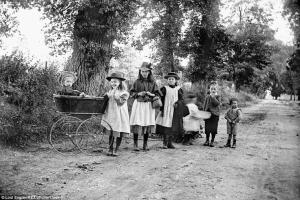 Children in a country lane, Dinton, Buckinghamshire, 1904.
Children in a country lane, Dinton, Buckinghamshire, 1904.
Incredible photos reveal what life was like for people in the 19th centuries | Daily Mail Online
I view Pope Francis as a man who has tried his best to live out the Gospel in his life.
And that’s what a saint is. I’m not going to canonize him; that’s far above my pay grade. I don’t know the state of his soul and neither do you. For all I know there are scandals beneath the surface that will break my heart if I find out about them. But from what I can see right now, he looks like a man who’s trying to live out the Gospel, with the knowledge he has, despite the limitations he has, to the best of his ability. If that’s so, he’s a saint indeed. That’s what all of us ought to do.
I pray for Pope Francis to have a gentle and painless transition to eternal life, whether that’s now or at another time. May perpetual light shine on him.
May all of us be saints.
Mary Pezzulo, A Prayer For Pope Francis (February 18, 2025)
Leah Libresco Sargeant The Tenderness of Pier Giorgio Frassati’s Second Miracle February 5, 2025 Word on Fire
Haley Stewart, author and the Managing Editor of Word on Fire Votive, joined Thomas Salerno to discuss his new book for young readers, The Riddle of the Tongue-Stones. The two discuss the fascinating life of Blessed Nicolas Steno, the relationship between faith and science, details about the book’s inception, and more.
Tom: The message of The Riddle of the Tongue-Stones is this: You don’t have to choose between science and religion! Nicolas Steno was a first-class scientist who made groundbreaking discoveries. He was also a faithful Christian to the end of his days. Steno’s saintly life embodied that famous quote from Pope John Paul II: “Faith and reason are like two wings on which the human spirit rises to the contemplation of truth.”
The Riddle of the Tongue-Stones is the fruit of my abiding, lifelong enthusiasm for the natural sciences. I truly believe that my experiences working in the fossil laboratories at Stony Brook University and the American Museum of Natural History were preparing me for my current vocation as a writer. God did not intend for me to keep all my knowledge about paleontology and the history of science to myself—I was meant to share this passion with the world!
Haley Stewart The Saintly Scientist for Young Readers February 3, 2025 Word on Fire
Carl Trueman has recently written an online piece published by First Things, entitled, “Why I Am Not a Catholic.” Here is the heart of his answer: “the present pope seems to be nothing more than a liberal Protestant in a white papal robe. And as a Protestant, I am acutely aware of the damage such people do.”
Trueman says that “a person, rooted in the transcendent, would always fear the wrath of God more than the op-eds of men.” The implication is clear: Francis is more concerned with op-eds than divine judgment. Yet Pope Francis has frequently reiterated teachings that garner no love from the secular-minded press.
For example, Pope Francis has repeatedly condemned abortion.
Francis wants to distinguish between “gender ideology” and “transgender people”; the former is to be rejected; the latter are always to be respected as created in the image of God and treated with the love of Christ.
To bless a homosexual-type union, however, goes against the given right, against the law of the Church.”
Does this sound like a man who is fearful of bad press?
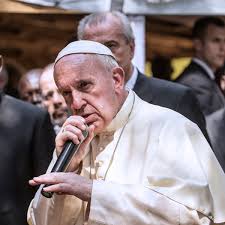
Pope Francis’s unwillingness to back down from other controversial aspects of Catholic teaching could also be mentioned here. Let me simply mention a few examples:
- his excommunication of a theologian who had argued in favor of same-sex marriages and women’s ordination;
- his teaching against surrogacy (Dignitas Infinita §48–50);
- his repudiation of pornography;
- his implementation of new penalties of excommunication for those who attempt to ordain women;
- his recent statements prohibiting women from the ordained diaconate (also articulated in no uncertain terms to a visibly shocked Norah O’Donnell)
· Is Pope Francis Really “Nothing More Than ‘A Liberal Protestant’”? (February 7, 2025) Where Peter Is
Larry Chapp@LarryChappGS22 (February 1, 2025): I needed to renew my passport and so I went to CVS to have my photo taken since they know all the rules for passport photos. All I can say is this: the rules are now designed to make all of us look like deranged maniacs. We are all now to look like someone in a criminal mugshot after being arrested for terminal cluelessness.
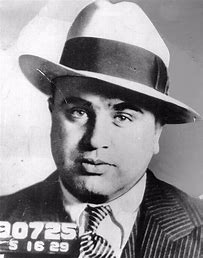
Mary is thus, as Cardinal Joseph Ratzinger pointed out, the “Daughter Zion” who represents all of Israel — indeed all of humanity as well — when she, in her sinlessness, offers to God the first fully and truly free “Yes” to his request to be allowed into human history in a complete way. And the importance of her “Yes” can be seen in the fact that after she utters it, the narrative tersely, but sweetly, ends: “Then the angel departed from her” (Luke 1:38).
The world took no notice of her “Yes,” uttered as it was in the quiet solitude of her home in Nazareth. Caesar slept soundly without disturbance. But Heaven shook, its portals opened to the earthly depths below, and the angels wept for joy.
Dr. Chapp is a very strong opinionated theologian who gives me hope.
The Church herself, in her Eucharistic liturgy and in the Liturgy of the Hours, asks us in places to pray for the salvation of all. I do not see anywhere in the rubrics where there is an asterisk next to those prayers indicating that they are in vain and that we should pray them with deep mental reservations and our fingers crossed. What are all of those prayers of intercession for in the Good Friday liturgy where we pray for the conversion everyone? Can we dispense with the tedium of all of that and cut it down to a few prayers indicative of a more provisional and “eschatologically realistic” hope of mass damnation? Why does St. Paul ask us to pray for the salvation of everyone? Was he a closeted crypto-Balthasarian? Why does Our Lady ask us to pray at the end of each decade of the Rosary, “lead all souls to heaven, especially those in most need of thy mercy”? Was she just having a bit of cheeky fun with us here? Was she in effect saying, “pray for all that all may go to heaven, but don’t get your hopes up because my Son has already stated that this is false.”
-Larry Chapp, Flee From Heresy is flawed, sloppy, and often erroneous (February 22, 2025) Catholic World Report
Tweeting to the Choir About The Catholic Guy Tweetermatic Universe JULY 07, 2022

The heavy metal door at the Ukrainian Catholic church seemed weighted to close hard. The old man with a gimpy leg had an old-fashioned wood cane with the hook and the heavy rubber tip. He had trouble pushing the door open after Divine Liturgy, and I reached over his shoulder to push it open.“Let me do this,” he said, but not sounding annoyed or defensive. He had to lean into the door to push it open and then keep leaning while balancing on his good leg so he could step down onto the sidewalk.“I got it,” he said, once outside, but not with satisfaction, and looking away from me. He couldn’t hold the door, though, and still looking away from the church, let it drop back so I had to catch it.He just walked away, rocking from his good leg to the cane. But I admired the way he said, “Let me do this.”— An FB memory from five years ago
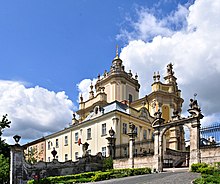
Every president wants to fix the country. Their voters elect them to fix the country. It always needs fixing, because a country is always to some extent broken, defective, sick. It is never what it could be. Just listen to the Trump and Biden campaign advertisements for examples of this conviction.
Someone clearly needs to do something, and our elected officials are the people deputized to do something. Within, that is, the limits of their office, which of course most of them forget. People with power tend to dislike boundaries, because boundaries keep them from doing what they want, and getting what they want.
That is what makes this question so important: How should they go about fixing the country, especially if they believe, as Donald Trump does, that the country needs radical surgery? What principles should guide them?
The most famous example of a medical guideline is the Hippocratic Oath and particularly the famous injunction, “First of all, do no harm.” The president could have learned from this. He should have practiced it.
You do (as a doctor or a president) what you have to do to heal the patient or fix the country. But you work very hard to make sure that you don’t hurt anyone more than you absolutely need to. You may get less than you want but you do more good for more people.
David Mills: First of all, do no harm, Mr. Trump (Jan 29, 2025) Pittsburgh Post-Gazette

I used to work at CatholicTV. On November 22, 2022 my old boss Bonnie Rodgers died. I was unable to go to the funeral because of Covid. It’s weird to think of her as actually gone from this world. By faith I believe she is alive in the next. Working at CatholicTV was a good 7 years of my life. They still produce good quality shows worth watching. She never got to see the above article but I think she might have liked it.
We’ve Got to Talk
Airs: Sun. 6:30am Mon. 2pm Tue. 2am & 8:30pm Wed. 11am
Tune in all new episodes of CatholicTV’s longest-running studio series, We’ve Got to Talk. Father Dan O’Con-
nell is back hosting his weekly show. Learn more about the Catholic Faith from Father Dan in his virtual
studio. New shows premiere Sunday mornings at 6.

Fr. Mike Schmitz’s videos save a young girl’s faith. JUNE 30, 2023
� Di bear (Diane)@Di_bear (February 23, 2025)
We need to be wise with how we love.
Love those who deserve it. That’s justice.
Love those who may or may not deserve it. That’s charity.
Love those who do not deserve it. That’s mercy.– Fr. Mike Schmitz
Eric Sammons@EricRSammons (February 13, 2025) “Mary & Eve”, a painting by Sister Grace, is one of my favorites. The artist is a nun of the Order of Cistercians of the Strict Observance from Dubuque’s Our Lady of the Mississippi Abbey.
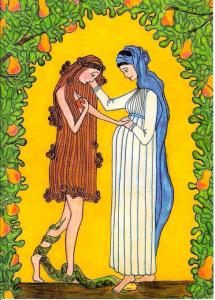
A priest recently criticized saying the St. Michael Prayer after Masses because it was distracting from the Eucharist. Bishop Paprocki answered that objection well. A prayer after Mass cannot be an obstacle to the spiritual life. Why can’t we face the crisis in the world that includes our being on the field of battle between Christ and Satan publicly and communally? We need all the help we can get; and in the Mass, we are in the vestibule of Heaven and can connect with the saints and angels in an open channel, as every Preface reminds us.
The more I pray the St. Michael Prayer, the more I am convinced of its benefits. It is a biblical prayer in the sense that it is based on Scripture and the role given there to St. Michael. As St. Ignatius of Loyola insisted in the Exercises, we ought to envision the two armies on the battlefield in order to choose the side we’re on.
Msgr. Richard C. Antall–St. Michael “Casting” or “Thrusting” Satan Into Hell? (February 6, 2025) Crisis Magazine
Other Catholics Whom I’ve Written About
The Catholic Bard’s Guide to Patheos Writers JUNE 27, 2020
A Tribute to Thomas Howard OCTOBER 16, 2020
A Conversation With Singer Katie Curtis JUNE 17, 2021
The Stained Glass Windows of B16 JANUARY 13, 2023
Church Militant’s Better Doppelganger AUGUST 17, 2020
The Wisdom of the Catholic Rigorous Vortex AUGUST 22, 2020
What are people starving for, Fr. Altman? JUNE 22, 2021
Does Wanting To Throw the Pope Into The Sea Make You A More Loving Catholic? SEPTEMBER 27, 2023
The Catholic Bard is always looking to share interesting articles about the faith and the world in which that faith is lived.
When I spot talented people I want to share their writing talent with others.
Guest Writing
The Keys of Doing the Father’s Will OCTOBER 23, 2020 by Deacon Joshua Klickman.


